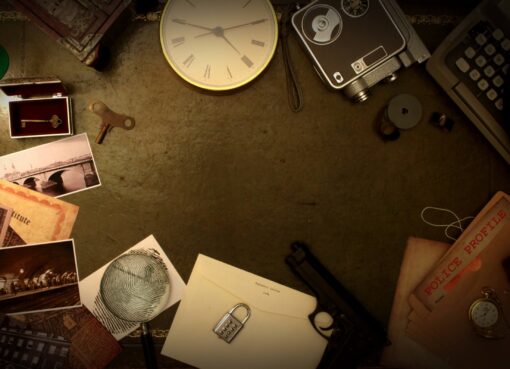Piracy has always been an issue in any domain you can think of but things really exploded in the digital era. In the past piracy was somehow restricted simply because the majority of people did not benefit from it, in other words, it was not worth the effort. The financial reward was very low compared to the risks involved not to mention that you had to possess seriously technical skills.
All these factors maintained piracy at a relatively low level combined with the fact that, no matter how good the final product was, it couldn’t be even compared to the original.
Also, Read: Coming Trends In Game Development
Internet Changed Everything
 Things were about to change pretty fast though, along with the internet and digital era. Many of the impediments for piracy quickly disappeared and it became very accessible to individuals with little or no technical knowledge. Being so accessible, there was a huge interest towards free download and thus the market for such activities increased exponentially.
Things were about to change pretty fast though, along with the internet and digital era. Many of the impediments for piracy quickly disappeared and it became very accessible to individuals with little or no technical knowledge. Being so accessible, there was a huge interest towards free download and thus the market for such activities increased exponentially.
Nowadays, most of the people that play video games have most of them unknowingly, supporting piracy by playing non-original games that they usually download via torrents. Torrents are a very ingenious way for downloading large files, mostly video games and movies, from several other users around the globe. The best thing about torrents is that, while you’re downloading from somebody else, the piece of information you’ve already downloaded becomes accessible to other users that are looking for the same media.
Warez Groups And Their Battle With Denuvo
With such a wide market for pirated media, it was just a matter of time until pirates got organized in structures and groups under the same goal. The most interesting part is that these groups are generally driven by reputation and harming the video game developers.

One example of such group is called Reloaded, or RLD, founded in 2004. Their biggest achievement was releasing a cracked version of Spore, 4 days before the official release date. But perhaps the best-known group of the same direction was formed in 1990 and goes by the name Skidrow. After some issues, they resurfaced in 2007 and since then they hold some impressive records like being the first to crack Assassin’s Creed 2 and Prince of Persia – The Forgotten Sands.
Another warez group from Italy known as CONSPIR4CY holds the honour of being the first to create available and working cracks for games that were using Denuvo protection. They have managed to crack Resident Evil 7 – Biohazard five days after its official launch date. This was the fastest crack release for Denuvo-protected video games known to date.
The bottom line is that in order to have good games available, the developers need to be able to sell those games and pay the salaries of the creators. Even though medina piracy looks different now, the essential issue remained the same – if you want great games, developers need to get paid in order to spend time and create those awesome projects.

If warez groups win the fight and the video games are made available for free through cracking, there’s not much return of investment for the game developers. That’s why the need for technologies like Denuvo or whatever it will be called in the future remains in the focus.
The idea of preventing people from playing games they didn’t buy was around a long time before games entered the digital and Internet era. Computer games in the 90’s, for example, requested their users some very specific questions for which you could only have an answer by checking the physical manual of the bought game. One example of such specific question could be what is the third word on page 12 in the third paragraph?
“Please insert CD/DVD in the drive”
Of course because of that, along with the progress of technology, game developers thought about new, more ingenious ways to fight against piracy. And it was also a matter of how much should be done to prevent piracy and don’t bother your paying customers. And unfortunately, that happened a lot in the 90’s which lead to a general lack of trust regarding anti-piracy tools.

One of the most annoying measures used in the 90s and early 2000s was to ask for the CD to be inserted in the drive in order to launch the game. And, shockingly enough, this leads people that actually bought the game to apply hacks and patches that removed this requirement.
This is a more modern of the same tactic that forces players to register an online copy of the game and you could only use a number of computers for every copy. A famous incident with SecuROM happened with Spore, causing it to become the most pirated game in 2008. This leads to a huge lawsuit and in the end, EA settled.
The birth of Denuvo
Denuvo appeared after the ones that created SecuROM – Sony Digital Works – were taken out of the company and that was a moment of true importance. The DRM company literally rose from its ashes and slowly became the best DRM software available on the market in the present day.

Their goal is to make the game unbreakable for a minimum of 60 days after the official release date. They’re so good at what they’re doing that even if a game gets cracked, another fresh and better layer of security can be added. That’s specifically why the flashy “Denuvo cracked” headlines don’t really mean a lot.
This tactic also ensures that only one game at a time can be cracked, making sure hackers don’t gain access to other Denuvo-locked games. They also won’t be able to access any updated versions of the game that was just cracked. With Denuvo, you can add extra security when a new DLC is being released or even just a quick patch.
Now you can understand why all the major hacking groups are left with nothing but banging their heads against this, seemingly, impenetrable wall that is Denuvo.
What the future holds?
Well, if you take a look at most torrent websites in present days you will see a lot of comments that will surely guide you to believe that there’s a huge level of frustration. Especially with the new Tomb Raider and Just Cause 3 which took pirates over a year to crack, players seem to believe that Denuvo might actually be the end to hacked blockbuster games. And even if that’s not going to be entirely true, slowing hackers down is also a very big win for the game producers. All the contribution Denuvo brings to the gaming industry should lead to cheaper and more accessible games.
On the other hand, having the good protection software is not necessarily a guarantee for the success of the gaming companies. Games like Just Cause 3 will be eventually cracked but the million-dollar question remains: “When?”. And this general uncertainty should mean that the sales go up as the players who would usually know that in another month they’ll get the cracked version. Are people really that poor and still going to wait months in a row to get the hacked version? I guess we’ll have to wait and see.
One thing is certain though, we are getting closer and closer to an era in which big-budget games will become invulnerable to the attacks of pirates and hackers. If the premonition of China-based hacking group 3DM will turn out to be true it will take only two years. One thing never changed though, rules are made to be broken so most probably hacking groups will find a way to catch up in the losing fight they are participating in. What regular gamers can do in the meantime is understand that if they have found a game they love and really like, it is always better to support the developing company in order to get more of those games in the future. As, just like everything else, good games tend to disappear if nobody is paying for them.

Hello. I’m a 38-year-old sales accountant from Yorkshire, UK. I’m relatively new to the whole blogging field but eager to write articles thus be a contributor to your platform.





Comment here